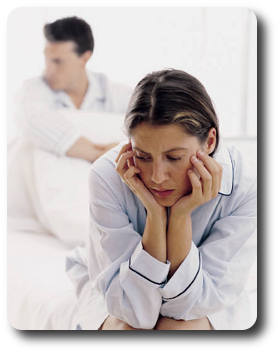Stress: Can it Harm Fertility?
You probably already know that stress can lead to stomach ulcers, headaches, depression, anxiety, panic attacks, heart attacks, and a compromised immune system – but did you know that stress can also hurt your reproductive system?
Both men and women can be impacted, thereby reducing the chances of a healthy conception.
How Pregnancy Is Impacted by Stress

Stress can negatively affect fertility by:
- causing irritability
- making you tired and lethargic
- dampening the romance factor
- causing the libido in both men and women to plunge
Stress impacts the hormones and reproductive organs of both sexes. When you are stressed, the production of a chemical called cortisol is increased, negatively affecting sex hormones and the reproductive activity that happens inside of the body.
Oxidative stress, a condition caused by stress in men, can do reproductive harm by resulting in:
- impotence
- ejaculation problems
- abnormal sperm
- low sperm count
- decreased sperm mobility
- fragmented DNA inside the sperm cells
Excess stress in a woman can lead to:
- cessation of ovulation
- cessation of menstruation
- the interrupted chemical and physical process of egg maturation and release
- spasms and chemical changes in the fallopian tubes and uterus (preventing implantation)
- miscarriage
Ways to Reduce Stress on Fertility

Ways that couples can reduce stress:
- laugh together
- give each other a massage
- schedule time to unwind
- listen to relaxing music
- eliminate caffeine
- meditate
- exercise
- see a counselor, individually or together
- use visualization techniques to foster positive thoughts
- take a romantic getaway
Couples who have difficulty conceiving due to fertility problems often get lost in a downward spiral of stress. The cycle of stress must be resolved to create the best environment for conception.
Jennifer Cebulak
Research Editor
Alternatives to ZRT Fertility Hormone Test Kit
Basic Reproductive Hormone Trio Test
Single hormone tests (good for affordable re-testing):
Luteinizing Hormone (LH)
Follicle-Stimulating Hormone (FSH)


